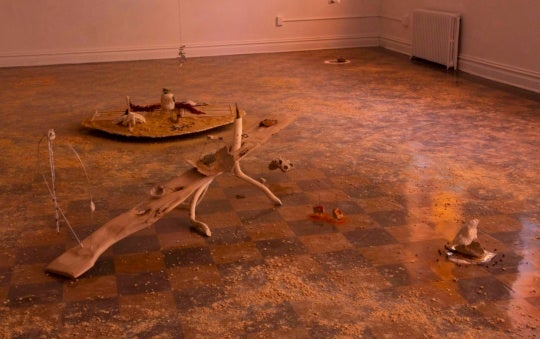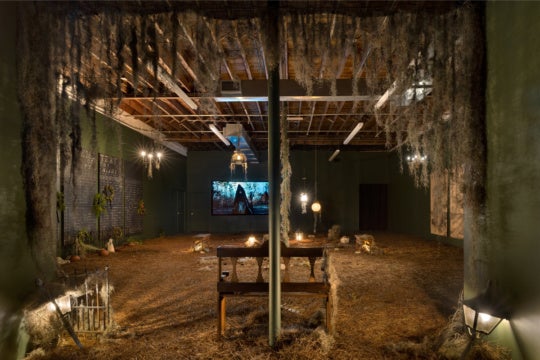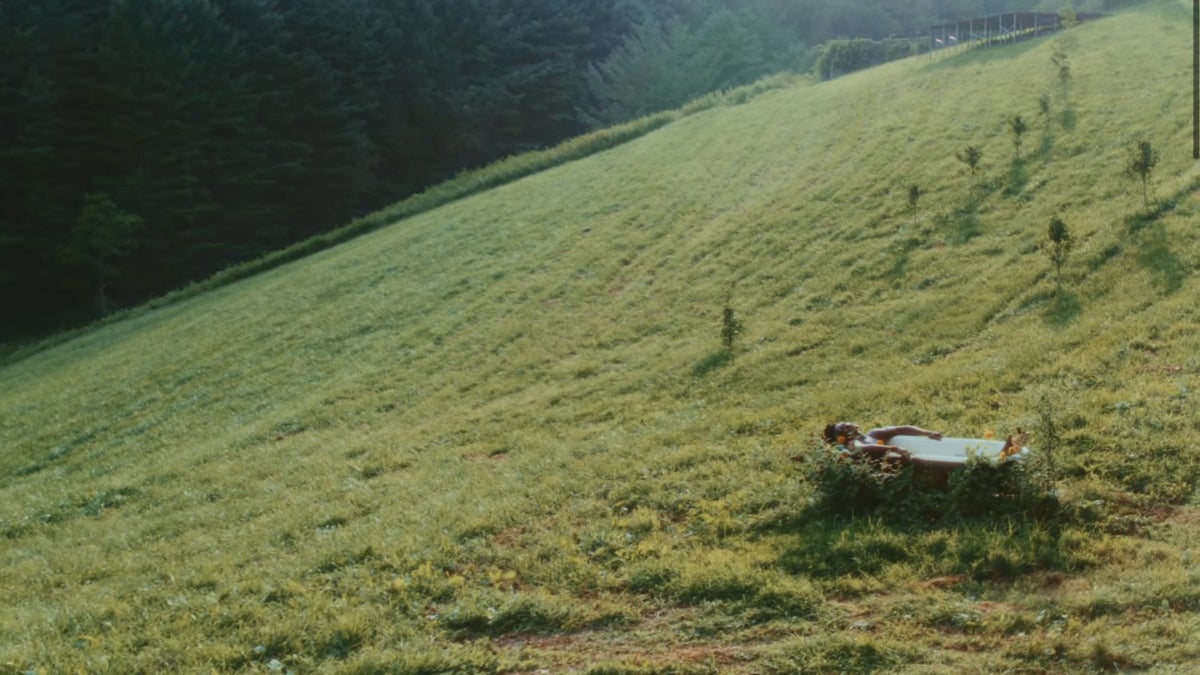
blackbirds
come rest home
let your dreaming
winged flying spirits pause
meditate
pause your deep soul be peace
for you can rest here
in this green
enchanted place
claim sanctuary
in these hills
made sacred
by native trust
small yet mighty
find your belonging1
When I wrote bell hooks on June 29, 2021, I did not know she was sick.
Still in the early stages of planning, I was beginning to reach out to folks to participate in a series of programs I was curating for The Poetry Project. The series did not have a name yet, but I knew it was about home.
In my email, I told Dr. hooks that I deeply admired her writing on resistance politics and homemaking. What I did not say is that she had completely altered the way I thought about myself, that I considered her a confidante. Or that her words had been carefully tucked in the back of my mind ever since I discovered her essay “Forever” in Rebecca Walker’s anthology Black Cool, during my senior year of high school. So carefully tucked, I admit, it was not uncommon for me to forget they were there.
I devoured Black Cool at the age of seventeen. Unbeknownst to me at the time, I would go on to meet with many of the writers featured in the anthology in the coming years—over Thai food with Staceyann Chin, while shopping a creative nonfiction course with Margo Jefferson, during an intimate guest lecture with Hank Willis Thomas, in a public program I helped coordinate for Dawoud Bey.
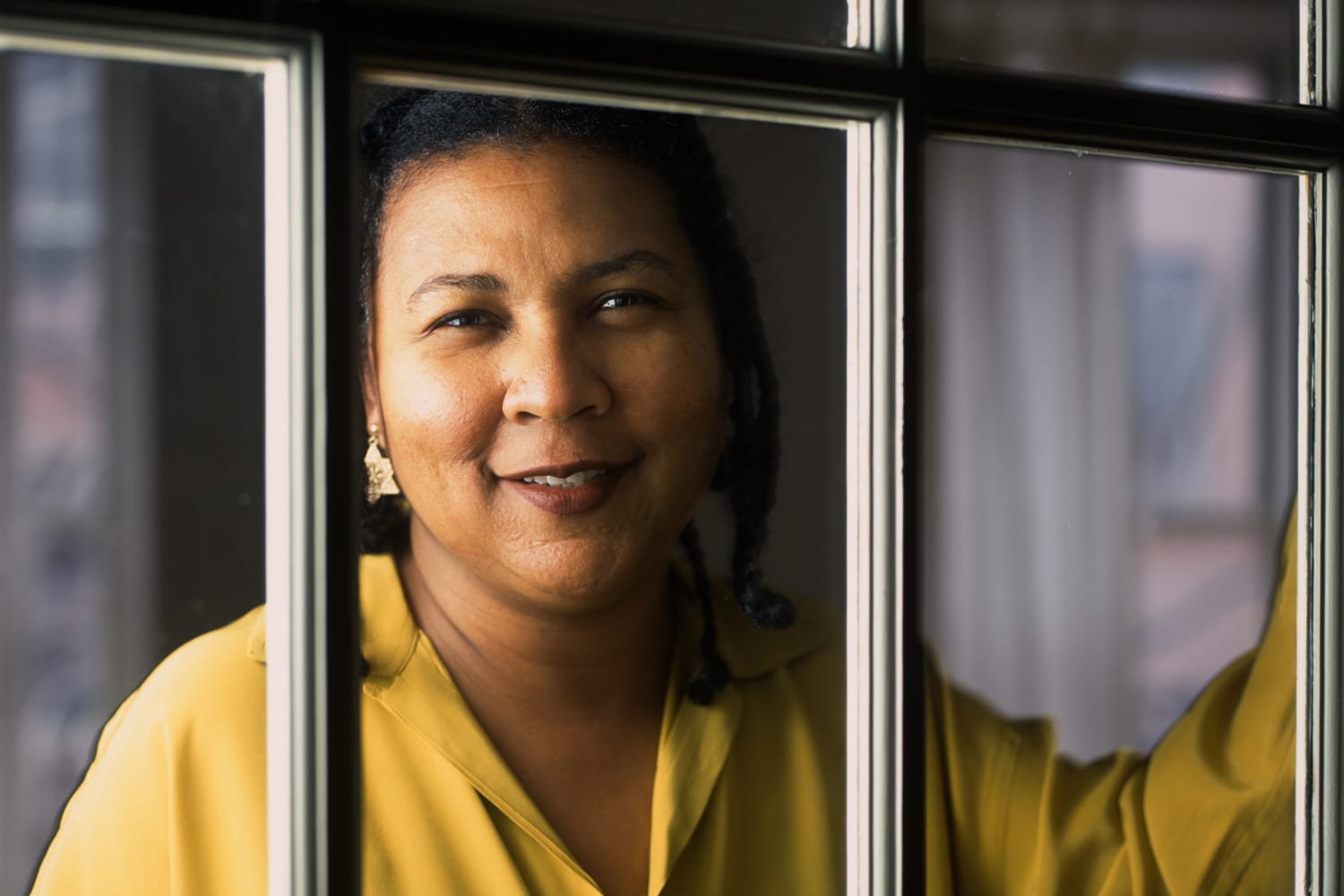
bell hooks, however, was the writer I always came back to. As I shifted my major once, twice, and finally to art history, I returned to her essay “The Oppositional Gaze: Black Female Spectators,” open in a separate tab. And then it was “Homeplace (a site of resistance)” while I was on the plane back to Atlanta for the holidays, and then it was Talking Back, and then it was Sisters of the Yam. When relation did not seem possible, I shakily annotated All About Love on an empty 2 train after dark, realizing I was lost in Brooklyn and headed in the wrong direction. hooks and her words always took me home.
After several weeks without a reply, I decided to try again. I told her I hoped she was taking great care. At this point, I only prayed for a response. Receiving her blessing would be more than enough, since the series was growing out of her writing on marginality, love, and liberation. At any rate, I was moving on in the planning process, and didn’t want to insult her with the modest honorarium.
How do you value someone so treasured, so free?
Sublime silence surrounds me. I have walked to the top of the hill, plopped myself down to watch the world around me. I have no fear here, in this world of trees, weeds, and growing things. This is the world I was born into: a world of wild things. In it the wilderness in me speaks. I am wild. I hear my elders caution mama, telling her that she is making a mistake, letting me “run wild,” letting me run with my brother as though no gender separates us.
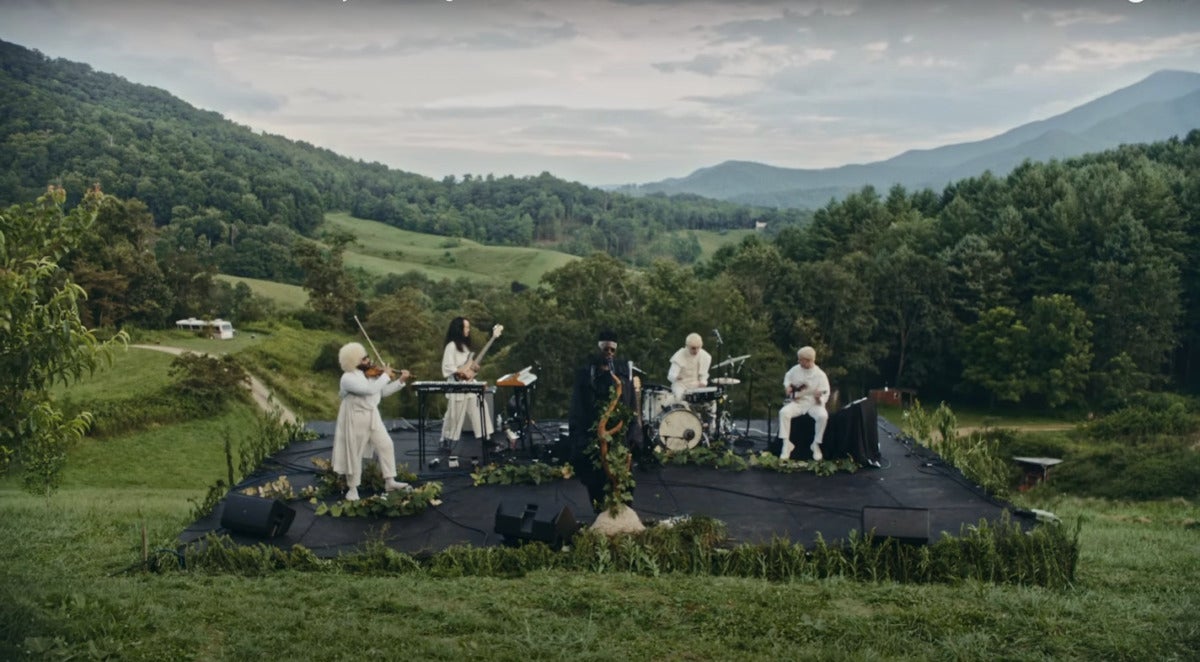
In these opening lines of Appalachian Elegy, hooks offers a verdant description of her childhood, growing up in the Kentuckian hills. Here, in this description of Appalachia as a space of refuge, of wildness, and of freedom for Black folks, is where I find Blackalachia, Moses Sumney’s directorial debut, filmed in the Blue Ridge Mountains in July 2020. The concert film opens with Sumney running on a trail through the hills of western North Carolina in a billowing black cape against the growing sound of instruments tuning. Like a blackbird, he flies up a hill, wings spread, and joins the band at its crest. The stage is peppered with greenery—leafy garlands lay at their feet. A winding branch holding the singer’s microphone spouts from a rock, in what could be a reference to the Moses detailed in the Hebrew Bible. Rock already struck, Moses bows his head and sound comes forth, abundantly.
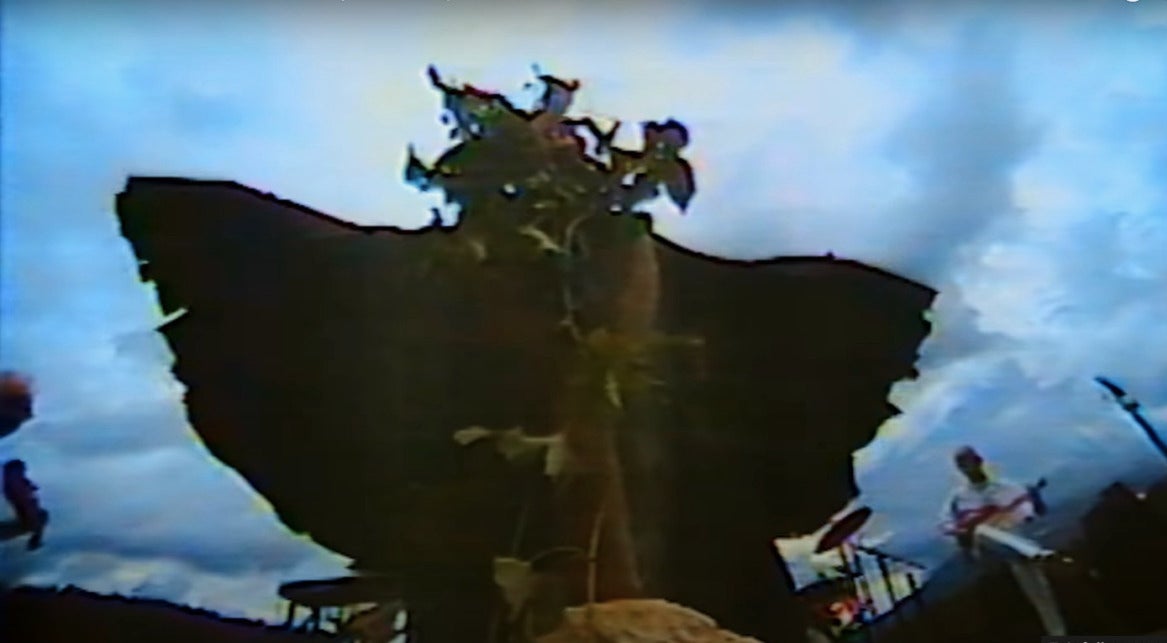
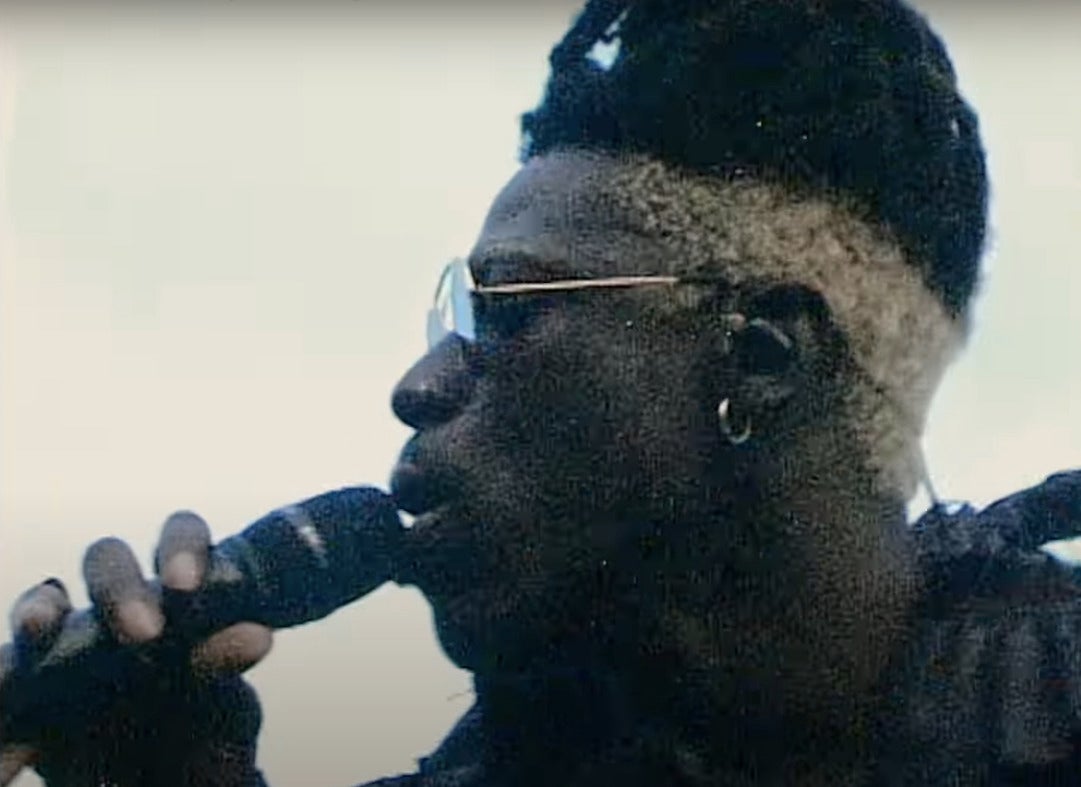
In early 2020, Sumney and his band joined in his home in Asheville, NC. Together they rearranged songs from his earlier projects Aromanticism (2017) and græ (2020) into “a live odyssey,” with plans for a proposed film and tour. A few months later, the international tour was no longer a possibility and the project had to take a new form. Sumney decided to make a record, what he calls “a copper snapshot of those musical arrangements and the turmoil and beauty of that year.” Always wanting to create a live album, the band traveled to the Appalachian mountains and created Live From Blackalachia.
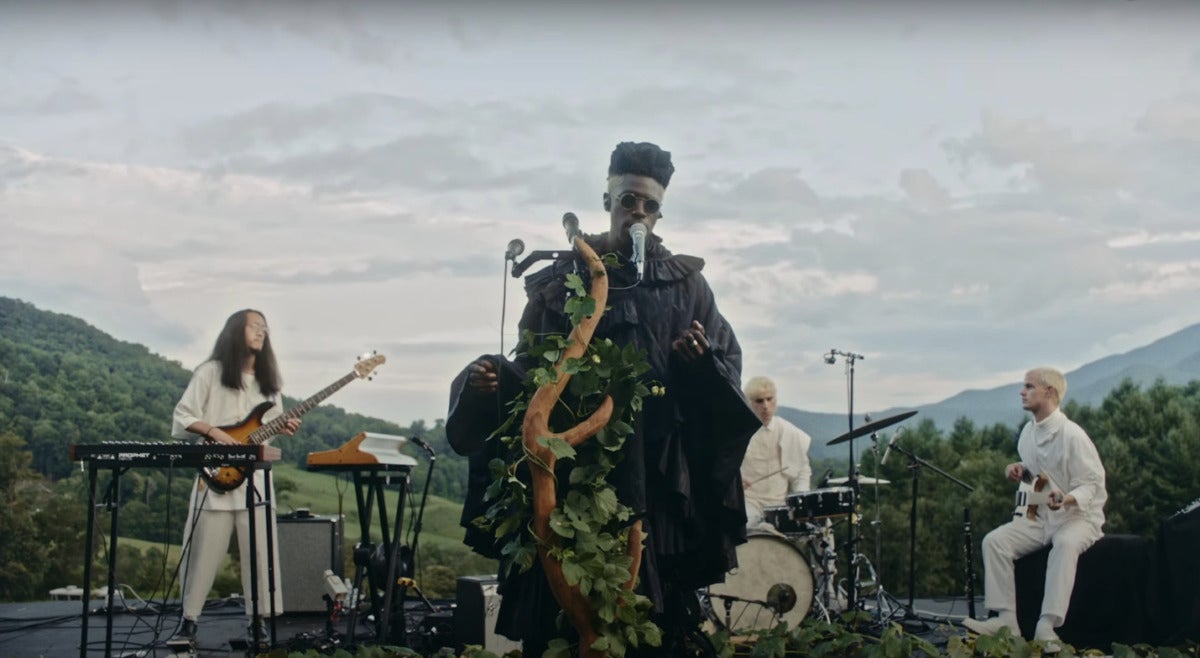
“Over the course of two days, we filmed fourteen songs, totally live, the trees as our audience, the grasshoppers our background singers. Blackalachia is a wild imagining of what can happen when we seek not just to reclaim nature, but to reintegrate with it.” Like hooks in her introduction, Sumney’s telling borders on transcendental. Both express a desire for wilderness, an allegiance with the land, which in return provides a space for them to “find voice, to speak [their] belonging.”
In his self-directed film, we are reintroduced to Sumney as sound engineer, maestro, choreographer, musician, and singer-songwriter. Aesthetically, the concert film shifts in quality, occasionally glitching to a more degraded, vintage dimension in cadence with drumbeats and guitar riffs. Sumney’s earlier projects, Aromanticism and græ offer genderless and genreless meditations on aloneness, masculinity, and existentialism. In Blackalachia, aloneness shifts to insula, the root word of isolation meaning “island;” masculinity gives way to wild, nonbinary daydreams; and existentialism to a meditative reintegration with Appalachian soil. We do not find ourselves in a garden, but a valley, virile.
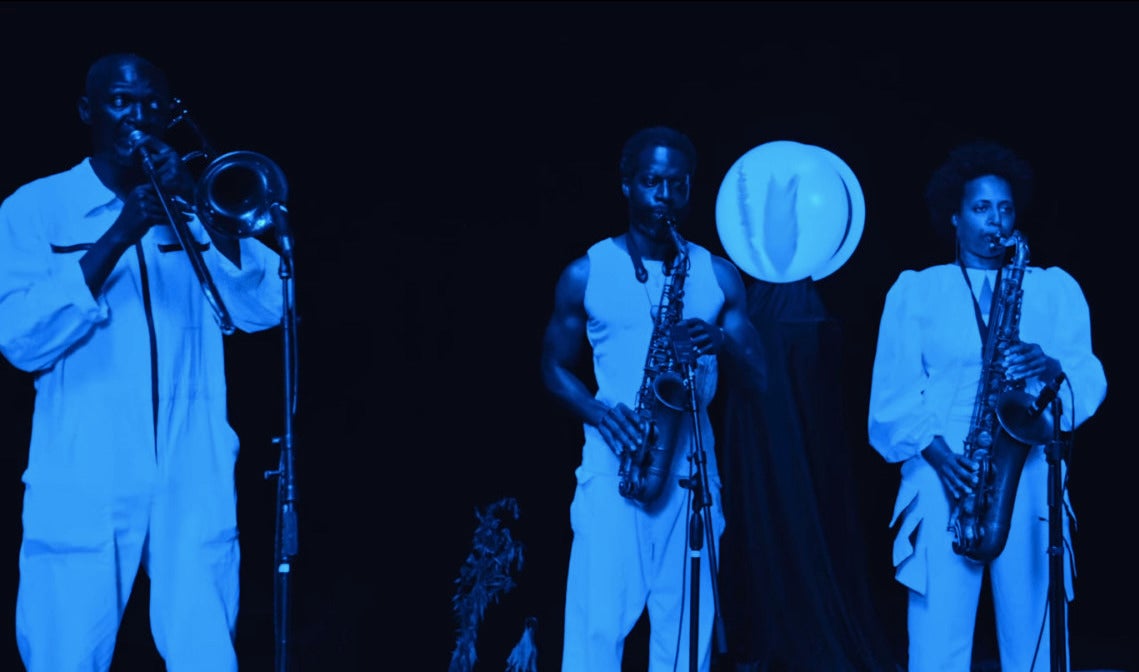
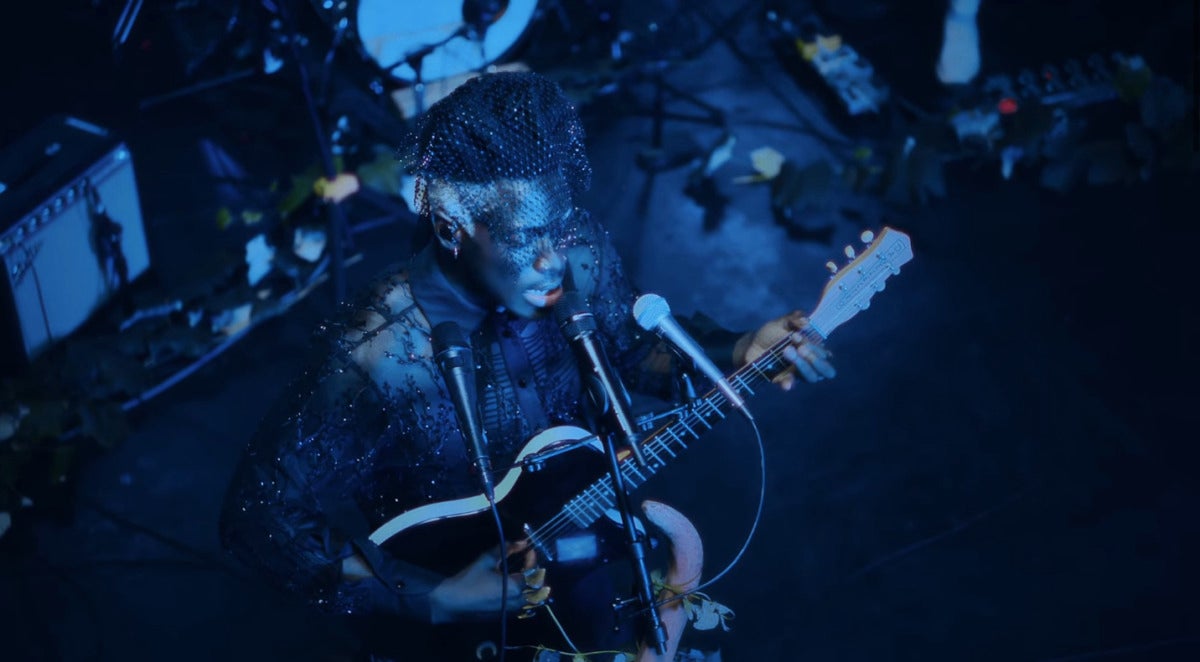
Roughly forty minutes into the concert film, Sumney performs “Bless Me.” He wears a bejeweled black mesh covering over his eyes, the kind I have seen church mothers wear over special-occasion wigs and intricate up-dos at funerals and holy convocations. The scene is saturated in blue light, giving the black set-design and costume a certain solemnity and elegance. The subject of “Bless Me” is gone, to where is never specified, but there are lyrical cues that suggest the relationship between Sumney and the subject is short-lived, leading the artist to wish that he could freeze time. It is the longest track in Blackalachia, a sweeping tribute cushioned with generous operatic runs and teeming with Moses’ tell-tale falsetto. The song’s soulful chorus urged me to think of Blackalachia as a type of Appalachian elegy, a temporary reprieve from the craze of a pandemic-stricken world, a rededication of oneself to land, a cry of lamentation for the Black lives that bled into bluegrasses.
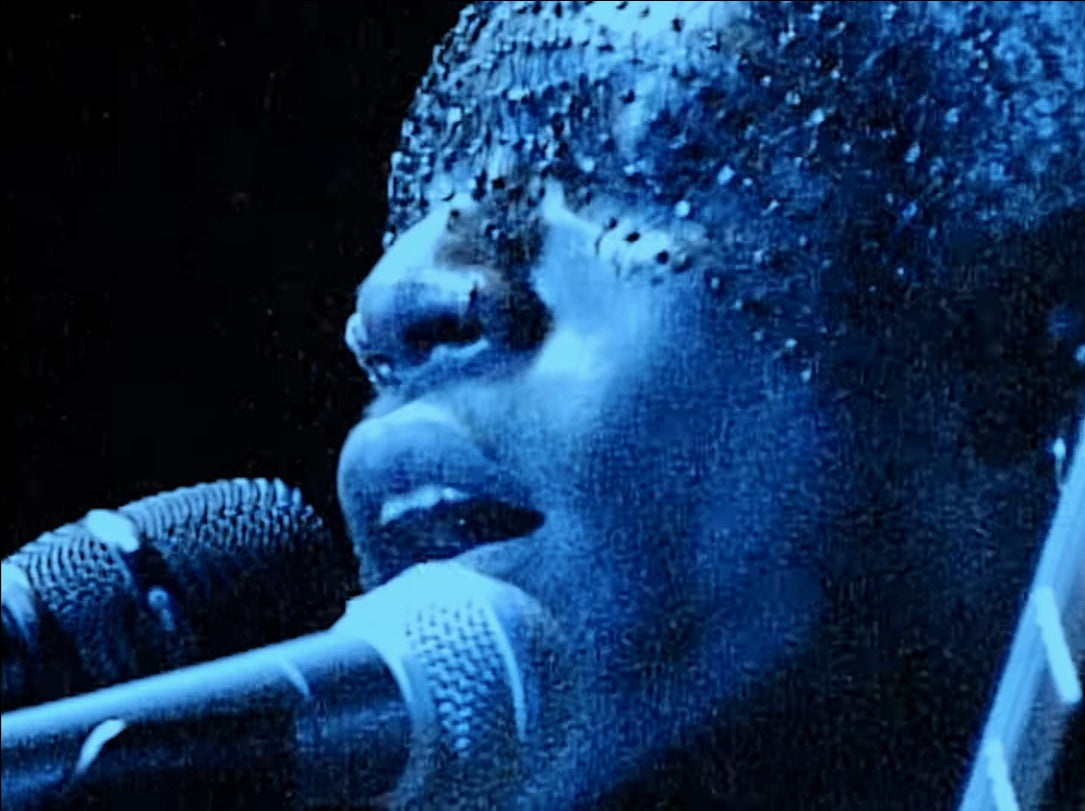
At what could be considered the climax of “Bless Me,” Sumney belts out a cry, singing “You’re going nowhere with me.” Words repeated countless times up to this point, we witness their realization, what it means to have to leave behind, to be the one left behind. The cry quiets into an airy sob, coupled by a near-acoustic arrangement by Sumney and the band. Eventually, the song fades out as the camera pans to a close-up of Sumney in a frame reminiscent of the late Southern composer and cosmic philosopher Sun Ra. Lips part, the singer is blue in the face from the light—the bedazzled covering over his closed eyes like a prayer cloth. Returned to, though not of, this world.
Bless me before you go.
1 bell hooks, Appalachian elegy: poetry and place (Lexington: University of Kentucky Press, 2012), 63.
2 bell hooks, Appalachian elegy: poetry and place (Lexington: University of Kentucky Press, 2012), 1.
PAMM Presents: An Evening with Moses Sumney took place on December 2, 2021. Blackalachia, directed by Moses Sumney, is available to watch on YouTube and for purchase on Rough Trade.

